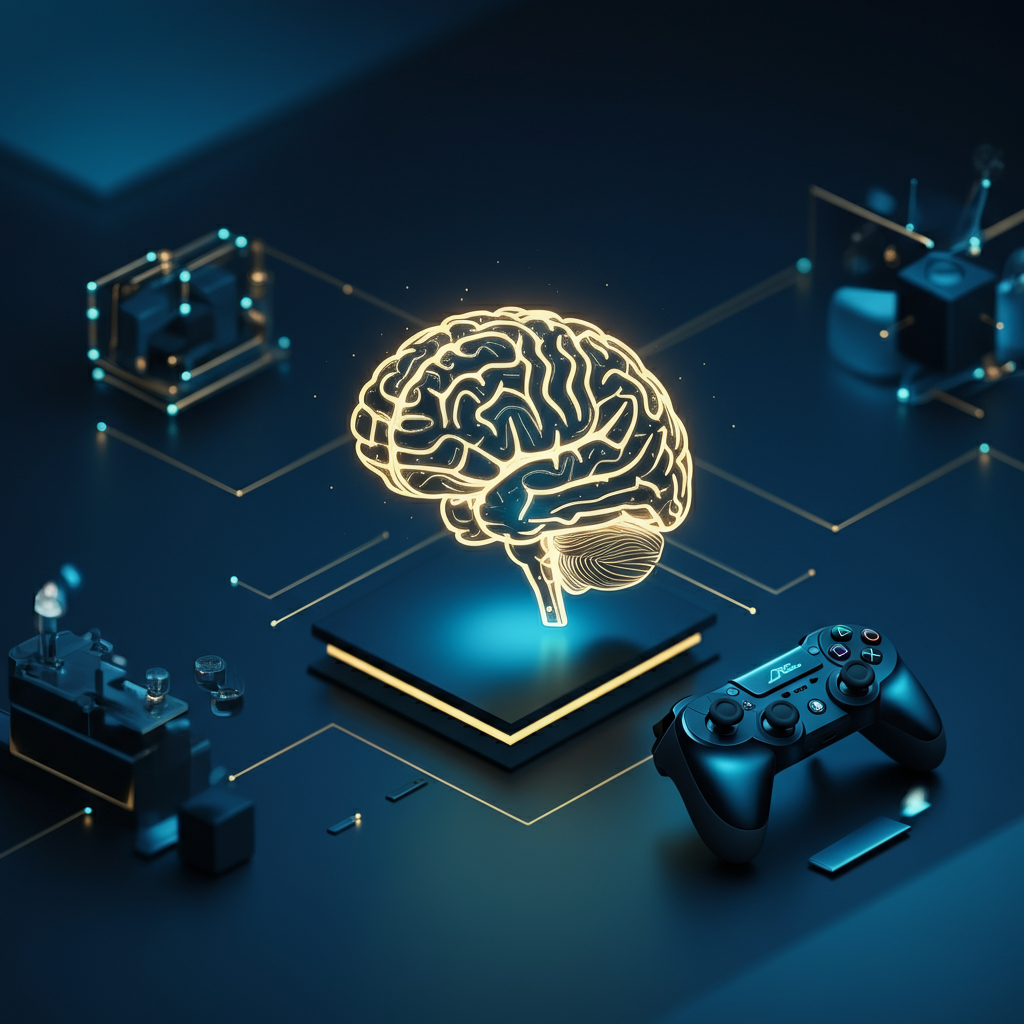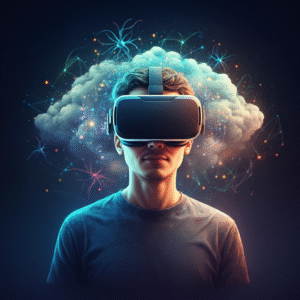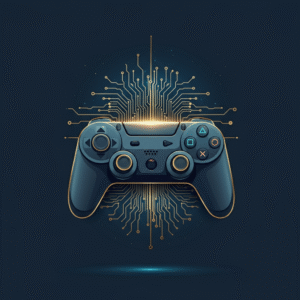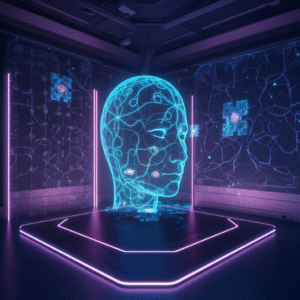
Introduction
The human mind is incredibly powerful; it can alter our emotions and even heal us simply by believing. Although the placebo effect has been researched in medicine for many years, its impact extends well beyond medications and clinical studies. What if we think of the placebo effect as a “placebo game”—a collection of interactive, social, and mental experiences where context, expectation, and imagination influence actual results?
We’ll delve deeply into the idea of the placebo game and examine how it combines psychology, gaming, wellness, and daily life. We’ll go over how it functions, what makes it so potent, and why it’s influencing everything from therapy and healthcare to escape rooms and entertainment. Continue reading to learn more about the power of belief and how mental “games” have real-world consequences.

What Is a Placebo Game?
A single game or app is not a placebo game. Though the underlying action has no known active component, it is an idea—an experience or activity where your belief, expectation, or perception can have tangible effects. The most well-known example is the placebo pill, which is an inert sugar tablet that, when administered as a treatment, can actually produce positive results because the patient anticipates improving.
Placebo games take that idea further. These can include:
- Video games with healing narratives: For example, “Placebo Effect” lets you battle disease inside a virtual body, tying play to feelings of wellness and empowerment.
- Escape rooms that simulate mind control or experimentation: Places like “The Great Escape – Placebo” create environments where participants confront puzzles and narratives that mirror psychological challenges, fostering growth and resilience through pretend play.
- Well-being apps and gamified therapies: Numerous wellness platforms use virtual accomplishments, progress bars, or soothing visualizations to elicit genuine benefits based on your personal beliefs.
In a broader sense, the placebo game involves using our innate ability to interpret structured experiences in order to support a result by utilizing expectation, ritual, and narrative.
The Science of the Placebo: How Belief Creates Reality
To understand placebo games, we need to see what’s going on in the mind and body during a placebo effect.
- Biochemical changes: Simply believing you’re receiving real help triggers brain chemicals like endorphins (natural painkillers), dopamine (linked to motivation and pleasure), and various stress hormones. Placebo effects, then, are not just “in your head.” They cause measurable changes in your brain and body.
- Brain regions involved: Areas like the anterior cingulate cortex, which processes pain, the prefrontal cortex, which is involved in thinking and expectation, and others are illuminated by placebo responses. Experiences and games that appeal to these areas can amplify the placebo effect.
- Ritual and context: The presence of visual cues, faith in authority, or a sense of belonging to something unique all increase the placebo’s potency. Because of this, well-made games that have a compelling plot, compelling graphics, and a well-organized structure can appeal to our innate desire for recovery or development.
- Open-label placebo: According to recent research, if the setting and experience are compelling and captivating, benefits can still be experienced even when people are aware that a treatment or game is a placebo. The willingness of the mind to cooperate is ingrained.
In short: Our brains are wired to respond to expectation and meaningful engagement. A placebo game leverages this wiring for positive change.
How Do Placebo Games Work?
While each placebo game looks different, they share common threads:
- A compelling narrative or goal: Plasmid games offer a narrative or methodical route to success, whether you’re tracking your breathing, battling a virtual illness, or escaping a mind-bending room.
- Multi-sensory design: Music, graphics, haptic feedback, and atmospheric storytelling boost emotional investment.
- Interactive mechanics: Players solve puzzles, make choices, progress through levels, or self-reflect, which makes the experience feel active and “real.”
- Social engagement: Many placebo games involve groups or communities, amplifying belief and accountability. Escape rooms, team challenges, and online forums all ramp up the effects.
- Feedback and achievements: A sense of achievement is reinforced by points, badges, and apparent progress, which can heighten the impact and release dopamine rewards.
- Personalization: Customizing a quest, routine, or interface increases buy-in. Personal relevance and choice enhance the mind’s natural response.
- Regular use: As with meditation or therapy, short, frequent sessions are more powerful than long, sporadic efforts—building a habit is part of the placebo magic.
The 30% Placebo Effect: What Does It Mean?
Although results differ greatly depending on the situation, a frequently quoted statistic is that roughly 30% of people respond to placebo treatments. Studies on pain management may find rates between 20 and 40 percent, while those on depression may reach 50 to 60 percent. Games and other expectation-based interventions can be particularly effective for anxiety.
Compared to passive solutions, interactive experiences—including skillfully designed games—generally have greater placebo effects. Because of increased engagement, excitement, and belief, the more a participant participates in the process, the better the results will be.
Success rates also depend on:
- The credibility of the experience
- Participants’ expectations and openness
- Consistency and regular participation
Placebo games provide a framework for maximizing these variables through smart design, immersive storytelling, and emotionally resonant goals.

Placebo Games and Anxiety: A Promising Connection
Anxiety is one of the most promising targets for placebo games. Here’s why:
- Distraction and engagement: Absorbing game mechanics pull attention away from worry and rumination.
- Progressive exposure: These experiences allow safe, gradual confrontation with anxiety triggers, building mastery over time.
- Relaxation and mindfulness: Many wellness games use calming visuals, nature sounds, or controlled breathing to lower heart rate and stress.
- Social connection: By offering secure, controlled, and encouraging environments for social interaction, multiplayer video games and escape rooms aid in the recovery from social anxiety.
- Immediate feedback: Some games now pair with wearable devices, so the game responds to your heart rate or breathing, teaching self-regulation skills.
Players often report less anxiety, more confidence, and—crucially—transferrable coping skills they can use in life.
Gaming Psychology: Why We Believe
Why are humans primed to “fall for” placebo games, and why is that so beneficial?
- Suspension of disbelief: We’re hardwired to invest in stories and games, willingly setting aside skepticism to get lost in the experience.
- Flow state: Games that hit the sweet spot between challenge and skill induce a state of deep focus, which increases learning, reward, and absorption—fertile ground for positive placebo effects.
- Agency and mastery: Making decisions, moving forward, and conquering challenges cultivate a sense of control, which is a potent antidote to negativity and helplessness.
- Social proof: Seeing others achieve, recover, or thrive in the game reinforces our own expectations and ambition.
- Gamified health behaviors: Points, levels, and competition transform therapeutic actions (like meditation) into engaging challenges, boosting motivation.
Ritual and repetition—turning on the app, launching the routine, following familiar steps—link the game to comfort, resilience, and even physical healing.

Digital Therapeutics: Rethinking the Future of Healing
Digital therapeutics—validated health apps and games—are rapidly incorporating ideas from the placebo game. Highlights include:
- Virtual reality experiences: Users can be immersed in simulations through VR games and programs to learn skills, confront fears, or manage pain in a realistic and safe setting.
- Adaptive AI: Apps and games now use artificial intelligence to personalize experiences, adapting content, difficulty, and approach for maximal impact.
- Wearable integration: Heart rate, movement, or mood data from smart devices can feed back into the game, making outcomes feel direct and “real.”
- Prescription gaming: The distinction between interactive engagement and medical treatment is blurred when some clinicians recommend gaming interventions as a component of physical therapy or mental health treatment plans.
- Regulatory advances: To ensure the quality and efficacy of therapeutic games, governments are creating new frameworks for evaluation and approval.
Placebo Games in the Real World
Beyond video games, placebo game principles are shaping a variety of real-world solutions:
- Escape rooms as personal development: Problem-solving, collaboration, and storytelling offer cognitive, social, and emotional benefits.
- Corporate training and wellness: Games boost employee participation, strengthen teams, and can improve stress resilience or leadership skills.
- Education: By linking success to expectations and confidence, gamified platforms enhance language learning, math, literacy, and even test preparation.
- Rehabilitation and physical therapy: Interactive systems and video games help patients stay motivated, monitor their progress, and maintain challenging routines.
- Elder care and social connection: Games help combat depression, isolation, and cognitive decline by fostering meaningful activity in senior communities.
- Addiction recovery: Gamified social platforms and progress trackers aid in building healthier habits and maintaining motivation.
Ethics: Transparency and Responsibility
As placebo games become more mainstream, it’s vital to consider the ethics:
- Informed consent: Do users need to be aware that they are essentially participating in a placebo experience? Transparency fosters trust, but research indicates that some effects persist even when people are “in on it.”
- Blurring entertainment and therapy: To avoid making false claims and setting unrealistic expectations, developers, marketers, and caregivers must make a clear distinction between wellness and enjoyment and medical care.
- Protecting vulnerable users: Children, elderly, and those with serious mental health conditions require extra care to ensure safety, consent, and benefit.
- Data privacy: Games that track health data must keep sensitive information secure, just as medical apps do.
- Equity: Access to high-quality placebo games and digital therapeutics should be as broad and inclusive as possible.
By maintaining high standards and honest communication, the field can advance safely and responsibly.

Debunking Myths About Placebo Games
Let’s clear up a few common misconceptions:
- “It’s just in your head.” Actually, placebo games cause measurable physical and mental changes. The mind and body work together!
- “Only gullible people respond.” Placebo effects and response to expectation occur regardless of intelligence, education, or skepticism.
- “The results are temporary.” Some benefits fade, but others—especially those involving habit or self-image—can last for months or years.
- “Placebo games replace real treatment.” They should complement, not replace, proven therapies. Always consult professionals for serious issues.
- “One size fits all.” Just like any therapy, individuals respond differently. Personalization and variety help reach more people.
Designing Better Placebo Games
What makes a placebo game truly effective? These design principles stand out:
- Credibility: The experience must feel logical and engaging, even if the “treatment” is inert.
- Progressive challenge: Balanced difficulty, positive feedback, and visible growth sustain motivation and belief.
- Choice and personalization: Allowing users to customize their path strengthens buy-in and increases relevance.
- Immersive storytelling: Characters, plots, and vivid environments deepen emotional connections.
- Social integration: Teamwork, competition, leaderboards, and community features build trust and amplify expectations.
- Visible progress: Achievements, milestones, and feedback make the journey and results tangible.
By mixing psychology, design, and curiosity, creators can make games that offer both fun and meaningful change.
The Future: Where Do Placebo Games Go From Here?
Looking ahead, we can expect placebo games to become:
- More personalized through AI and adaptive content.
- More immersive via VR, AR, and haptic feedback.
- Woven into healthcare, with prescription gaming and regular therapeutic use.
- More social, using community power for healing and support.
- Accessible to all, thanks to mobile platforms, offline capability, and cultural customization.
The placebo game stands out as evidence of our mind’s capacity to use narrative, intention, and context for genuine benefit rather than as deception in an era where the boundaries between play, self-care, and healthcare are becoming increasingly blurred.

Conclusion: The Power Is in Your Hands
The placebo game is a window into our extraordinary ability to heal, develop, and change depending on our beliefs and how we choose to participate; it is not merely a scientific curiosity or a form of entertainment. Our minds are capable of transforming imagination into change through engaging stories, interactive tasks, and social interaction.
The fundamental formula is the same whether you experience this through a mindful daily routine, wellness app, escape room, or video game: meaningful engagement, positive expectation, and a sense of agency. These components offer a promising path for the advancement of health, wellness, and human flourishing while also improving our mood, performance, and interpersonal relationships.
How have you found gamified therapies, placebo effects, or expectation-driven outcomes to be? Post your ideas and anecdotes below; your viewpoint might encourage someone else to discover the placebo game’s therapeutic potential!





Leave a Reply